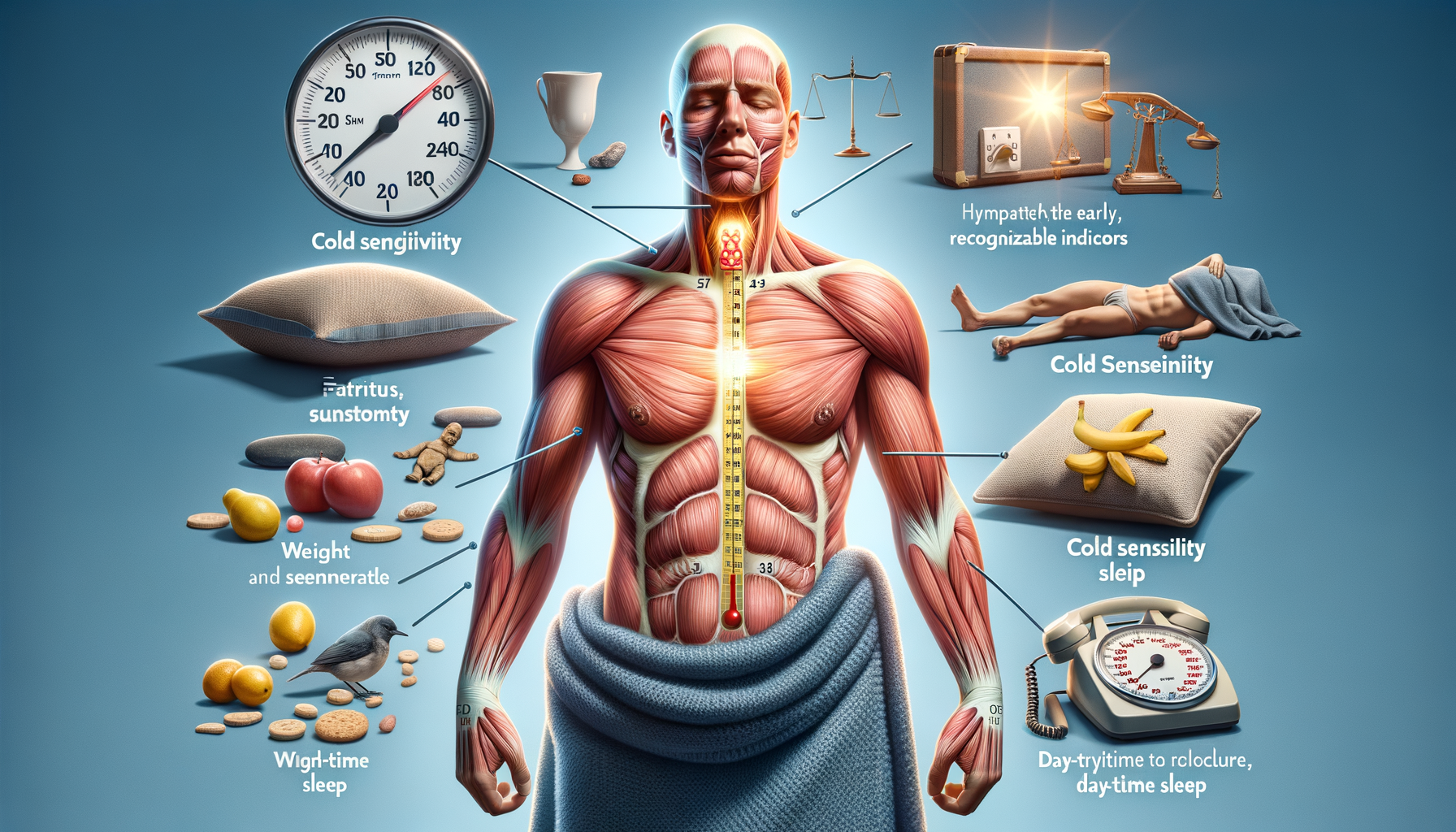Introduction to Underactive Thyroid
The thyroid gland, a small but mighty organ located in the neck, plays a crucial role in regulating metabolism, energy levels, and overall health. When the thyroid becomes underactive, a condition known as hypothyroidism, it can lead to a variety of symptoms that may affect daily life. Recognizing these early indicators is essential for timely diagnosis and effective management. In this article, we explore the symptoms of an underactive thyroid, providing insights into how they manifest and affect individuals.
Common Symptoms of Hypothyroidism
Hypothyroidism can present a spectrum of symptoms, often subtle and easily mistaken for other health issues. Some of the most common symptoms include:
- Fatigue: A persistent feeling of tiredness that doesn’t improve with rest.
- Weight Gain: Unexplained weight gain or difficulty losing weight despite diet and exercise.
- Cold Intolerance: Increased sensitivity to cold temperatures.
- Dry Skin and Hair: Skin may become dry and flaky, while hair can become brittle.
- Muscle Weakness: Generalized weakness, especially in the arms and legs.
These symptoms occur because an underactive thyroid slows down the body’s metabolism, affecting various bodily functions. It’s important to note that these symptoms can vary widely between individuals, with some experiencing only a few, while others may experience many.
Understanding the Causes of Hypothyroidism
Several factors can contribute to the development of an underactive thyroid. One of the primary causes is autoimmune disease, specifically Hashimoto’s thyroiditis, where the body’s immune system attacks the thyroid gland. Other causes can include:
- Iodine Deficiency: Iodine is essential for thyroid hormone production, and a deficiency can lead to hypothyroidism.
- Medications: Certain medications can interfere with thyroid function.
- Radiation Therapy: Treatment for cancers involving the head and neck can affect the thyroid.
- Thyroid Surgery: Removal of the thyroid gland can result in hypothyroidism.
Understanding these causes is crucial for both prevention and treatment, as addressing the underlying issue can often alleviate symptoms.
The Impact of Hypothyroidism on Daily Life
The symptoms of an underactive thyroid can significantly impact an individual’s quality of life. Fatigue and muscle weakness can affect daily activities and productivity, while weight gain and dry skin may lead to self-esteem issues. Additionally, cognitive symptoms such as difficulty concentrating and memory problems can further complicate day-to-day functioning.
These challenges underscore the importance of early detection and treatment. With proper management, many individuals with hypothyroidism can lead healthy, fulfilling lives. Treatment typically involves hormone replacement therapy, which can help restore normal thyroid function and alleviate symptoms.
Seeking Medical Advice and Treatment
If you suspect you may have an underactive thyroid, it is essential to seek medical advice. A healthcare provider can conduct a thorough evaluation, which may include a physical examination and blood tests to measure thyroid hormone levels. Early diagnosis and treatment are vital to managing symptoms effectively.
Once diagnosed, treatment usually involves taking synthetic thyroid hormone to replace what the body is not producing. Regular monitoring and follow-up appointments are necessary to ensure the treatment is effective and to adjust dosages if needed.
In conclusion, understanding the symptoms and causes of an underactive thyroid is crucial for early detection and management. By recognizing the signs and seeking appropriate medical care, individuals can manage their condition effectively and maintain a good quality of life.




Leave a Reply